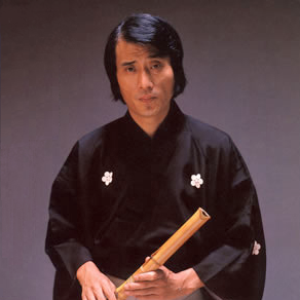
| Trackimage | Playbut | Trackname | Playbut | Trackname |
|---|---|---|---|---|
| 84697081 | Play | 銀界 | 00:00 Tools | |
| 84697085 | Play | Prologue | 00:00 Tools | |
| 90315515 | Play | Silver World | 00:00 Tools | |
| 84697082 | Play | 序 | 00:00 Tools | |
| 84697094 | Play | A Heavy Shower | 00:00 Tools | |
| 84697083 | Play | 竜安寺の石庭 | 00:00 Tools | |
| 84697084 | Play | 終 | 00:00 Tools | |
| 84697091 | Play | 序 (Prologue) | 00:00 Tools | |
| 84697102 | Play | Sawanose | 00:00 Tools | |
| 84697087 | Play | 驟雨 | 00:00 Tools | |
| 84697086 | Play | 沢之瀬 | 00:00 Tools | |
| 84697078 | Play | 誓いのフーガ | 00:00 Tools | |
| 84697092 | Play | 銀界 (Silver World) | 00:00 Tools | |
| 84697096 | Play | 竜安寺の石庭 (Stone Garden Of Ryoan Temple) | 00:00 Tools | |
| 84697093 | Play | 沢之瀬 (Sawanose) | 00:00 Tools | |
| 84697097 | Play | 驟雨 (A Heavy Shower) | 00:00 Tools | |
| 84697098 | Play | 終 (Epilogue) | 00:00 Tools | |
| 84697080 | Play | ラバー・カンバック・トゥ・ミー | 00:00 Tools | |
| 84697079 | Play | 小さな青いリンゴ | 00:00 Tools | |
| 88632030 | Play | Epilogue | 00:00 Tools | |
| 84697105 | Play | Stone Garden of Ryoon Temple | 00:00 Tools | |
| 84697088 | Play | 遠音 | 00:00 Tools | |
| 84697090 | Play | 銀響 | 00:00 Tools | |
| 84697095 | Play | 古鐘 | 00:00 Tools | |
| 84697099 | Play | 宇治巡り | 00:00 Tools | |
| 84697100 | Play | 無限の譜 | 00:00 Tools | |
| 84697101 | Play | 海の彩 | 00:00 Tools | |
| 84697103 | Play | 竹の譜 | 00:00 Tools | |
| 84697106 | Play | 陽明 | 00:00 Tools | |
| 84697107 | Play | 鼓動 | 00:00 Tools | |
| 84697109 | Play | 久遠の呼吸 | 00:00 Tools | |
| 84697104 | Play | 竹の組曲 Improvisation #1 | 00:00 Tools | |
| 84697108 | Play | 御山獅子 | 00:00 Tools | |
| 90315516 | Play | 新娘道成寺 | 00:00 Tools | |
| 84697110 | Play | 竹の組曲 Improvisation #2 | 00:00 Tools |

-
- 1,889
- plays
-
- 177
- listners
-
- 1889
- top track count
Hōzan Yamamoto (山本邦山, Yamamoto Hōzan; October 6, 1937 - February 10, 2014 in Ōtsu, Shiga prefecture) was a Japanese shakuhachi player, composer and lecturer. Yamamoto started playing the Japanese bamboo flute shakuhachi from the age of nine. He was initially taught by his father and then by Chozan Nakanishi. After graduating from Kyoto Junior College of Foreign Studies in 1958, he participated in UNESCO's World Folk music Festival and graduated from Seiha Music College in 1962. Together with kotoplayer Shinichi Yuize and Tony Scott he recorded the album Music for Zen Meditation in February 1964. After formation with Reibo Aoki and Katsuya Yokoyama of the widely acclaimed "Shakuhachi Sanbon Kai" trio in 1966, he electrified the conservative traditional scene by applying his talents to a variety of crossover collaborations. These have led him to work with such world-renowned musicians as Ravi Shankar, Helen Merrill, Gary Peacock and Karl Berger, but also with flute colleagues Jean-Pierre Rampal and Chris Hinze. In 1980 he was invited to the renowned Donaueschingen music festival with his trio. He recorded the music to the Samurai Reincarnation film and the album Masters of Zen: Shakuhachi & Organ (together with Wolfgang Mitterer at the organ) which he composed for his instrument. Through the 1970s and 1980s to the present he has led the shakuhachi world receiving innumerable honors, including Japanese Ministry of Cultural Affairs and Education Ministerial awards for his performances, recordings (numbering in the hundreds) and compositions. He served as lecturer at the Tokyo National University of Fine Arts and Music and as head of the Hozan-kai Shakuhachi Guild. In 2002 he became designated Living National Treasure of Japan. In 2004, he was awarded a Medal with Purple Ribbon. In 2009, he was awarded an Order of the Rising Sun, Gold Rays with Rosette. On February 10, 2014, he died in Tokyo. Read more on Last.fm. User-contributed text is available under the Creative Commons By-SA License; additional terms may apply.